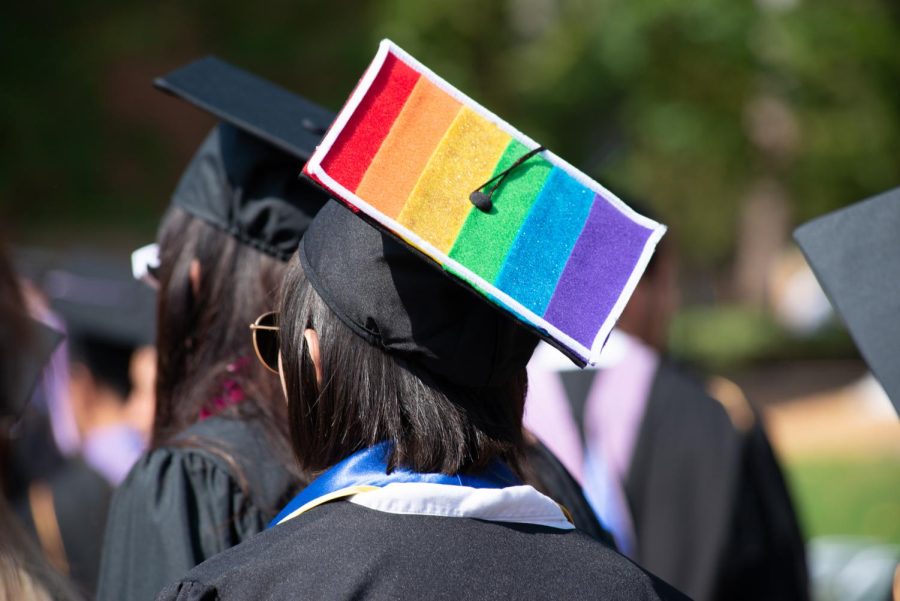NIU continues to foster safety for LGBTQ students
NIU has been named an LGBT friendly school in recent years.
September 21, 2022
As visibility of the LGBTQ community has risen over the years, the concern of the wellbeing of LGBTQ students in universities has become an ongoing discussion. NIU was given a 5 out of 5 on the Campus Pride Index, a measurement and evaluation of a university’s commitment to the LGBTQ community and their safety on campus.
Originally, two separate resource centers in the forms of the Lesbian, Gay, Bisexual, Transgender Resource Center and the Women’s Resource Center, the two merged to become the Gender and Sexuality Resource Center in 2014. Since then, the resource center has worked to promote visibility and awareness for LGBTQ issues within NIU’s student population. The center provides space for students to come to for assistance, to meet and to gain knowledge on LGBTQ issues.
“We like to say the the GSRC is a home away from home for students of all gender and sexual identities and all levels of masculinity and femininity,” said Ellis Heyen, a graduate research assistant for the GSRC.
The center is active on campus, holding guest speaker events and providing ally training in an effort to educate people on and off campus about LGBTQ issues and what they can do to make the environment around them more inclusive and welcoming.
Heyen said that the center has faced some challenges, like difficulty addressing policy change as well as backlash from other groups on campus. However, despite the difficulties, the center still plans to work toward creating a safer environment for LGBTQ students, especially for LGBTQ students of color.
“One of our goals is to continue our representation of QTPOC (Queer and Trans People of Color),” Heyen said. “It is really important for us to say LGBTQ+ identities are vast and intersecting, and so many LGBTQ+ people have also historically marginalized racial and ethnic identities, and it’s really important for us to create that visibility for those who do have those intersecting identities.”
One of the ways the center plans to increase recognition and knowledge of QTPOC issues is through the various programs they offer, such as Full Color Moment, an interactive coloring book experience with the goal of educating people on the history of marginalized racial and ethnic identities within the LGBTQ community. Read about their most recent Full Color Moment event here.







